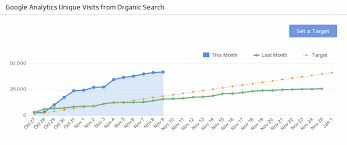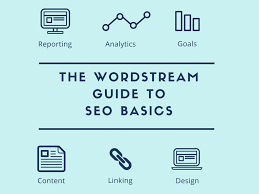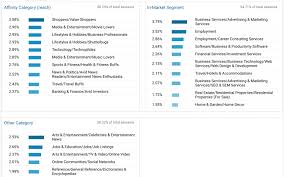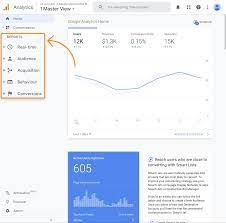The Power of SEO Analytics
Search Engine Optimization (SEO) is a crucial component of any successful online marketing strategy. It involves various tactics aimed at improving a website’s visibility in search engine results. However, to truly understand the effectiveness of your SEO efforts and make informed decisions, you need to delve into the world of SEO analytics.
What is SEO Analytics?
SEO analytics involves the collection, analysis, and interpretation of data related to your website’s performance in search engines. By using specialized tools and software, you can track key metrics such as organic traffic, keyword rankings, click-through rates, conversion rates, and more.
The Benefits of SEO Analytics
**Data-Driven Decisions:** By leveraging SEO analytics, you can make data-driven decisions about your website’s content, keywords, and overall strategy. This helps you focus on what works and identify areas for improvement.
**Performance Tracking:** With SEO analytics, you can monitor the performance of your website over time. You can track changes in traffic patterns, keyword rankings, and other metrics to gauge the impact of your SEO efforts.
**Competitor Analysis:** SEO analytics allows you to gain insights into your competitors’ strategies. By analysing their keywords, backlinks, and overall performance, you can identify opportunities to outperform them in search engine results.
Key Metrics to Monitor
**Organic Traffic:** This metric shows the number of visitors coming to your site through organic search results. Monitoring organic traffic helps you assess the effectiveness of your SEO campaigns.
**Keyword Rankings:** Tracking keyword rankings allows you to see how well your website is ranking for specific search terms. This helps you refine your keyword strategy for better visibility.
**Click-Through Rates (CTR):** CTR indicates the percentage of users who click on your website’s link in search results. By analysing CTR data, you can optimise meta tags and snippets to improve click-through rates.
In Conclusion
SEO analytics is a powerful tool that provides valuable insights into your website’s performance in search engines. By harnessing the power of data-driven decision-making and monitoring key metrics, you can enhance your SEO strategy and drive more organic traffic to your site.
Six Key SEO Analytics Practices for Enhancing Your Website’s Performance and Visibility
- Regularly monitor website traffic and user behaviour using tools like Google Analytics.
- Track keyword performance to understand which keywords drive the most traffic to your site.
- Analyse backlinks to identify high-quality sources and opportunities for link building.
- Monitor website loading speed and mobile-friendliness for better user experience and SEO ranking.
- Utilise SEO analytics to identify content that performs well and optimize underperforming content.
- Stay updated with algorithm changes and industry trends to adapt your SEO strategy accordingly.
Regularly monitor website traffic and user behaviour using tools like Google Analytics.
To maximise the effectiveness of your SEO strategy, it is essential to regularly monitor your website traffic and user behaviour. Utilising tools such as Google Analytics allows you to gain valuable insights into how visitors interact with your site, which pages they frequent, and where they may be dropping off. By analysing this data on a consistent basis, you can identify trends, track the impact of your SEO efforts, and make informed decisions to optimise your website for better performance in search engine results.
Track keyword performance to understand which keywords drive the most traffic to your site.
Tracking keyword performance is a fundamental aspect of SEO analytics. By monitoring how different keywords perform in driving traffic to your website, you gain valuable insights into which terms are most effective in attracting visitors. This data allows you to refine your keyword strategy, focusing on high-performing keywords to maximise your site’s visibility in search engine results. Understanding which keywords drive the most traffic empowers you to tailor your content and SEO efforts towards attracting the right audience and ultimately improving your website’s overall performance.
Analyse backlinks to identify high-quality sources and opportunities for link building.
Analysing backlinks is a fundamental aspect of SEO analytics that can uncover valuable insights and opportunities for enhancing your website’s authority and search engine rankings. By scrutinising backlinks, you can pinpoint high-quality sources that are linking to your site, as well as identify potential avenues for strategic link building. This process not only helps in strengthening your website’s credibility but also aids in attracting more organic traffic and improving your overall SEO performance.
Monitor website loading speed and mobile-friendliness for better user experience and SEO ranking.
Monitoring your website’s loading speed and ensuring mobile-friendliness are essential aspects of SEO analytics that can significantly impact user experience and search engine ranking. A fast-loading website and a responsive design that caters to mobile users not only enhance user satisfaction but also signal to search engines that your site is user-friendly and relevant. By prioritising these factors in your SEO strategy, you can improve both user engagement and your site’s visibility in search results, ultimately driving more organic traffic to your website.
Utilise SEO analytics to identify content that performs well and optimize underperforming content.
Utilising SEO analytics is essential for identifying content that resonates with your audience and drives traffic to your website. By analysing key metrics such as page views, bounce rates, and conversion rates, you can pinpoint high-performing content and understand what makes it successful. Additionally, SEO analytics can help you identify underperforming content that may need improvement or optimization. By leveraging this data-driven approach, you can refine your content strategy, enhance user engagement, and ultimately boost your website’s visibility in search engine results.
Stay updated with algorithm changes and industry trends to adapt your SEO strategy accordingly.
Staying updated with algorithm changes and industry trends is paramount in the realm of SEO analytics. By remaining informed about the latest developments, you can adapt your SEO strategy effectively to align with search engine algorithms and stay ahead of the competition. Keeping a finger on the pulse of industry shifts allows you to make informed decisions, refine your tactics, and ultimately enhance your website’s visibility and performance in search engine results.




